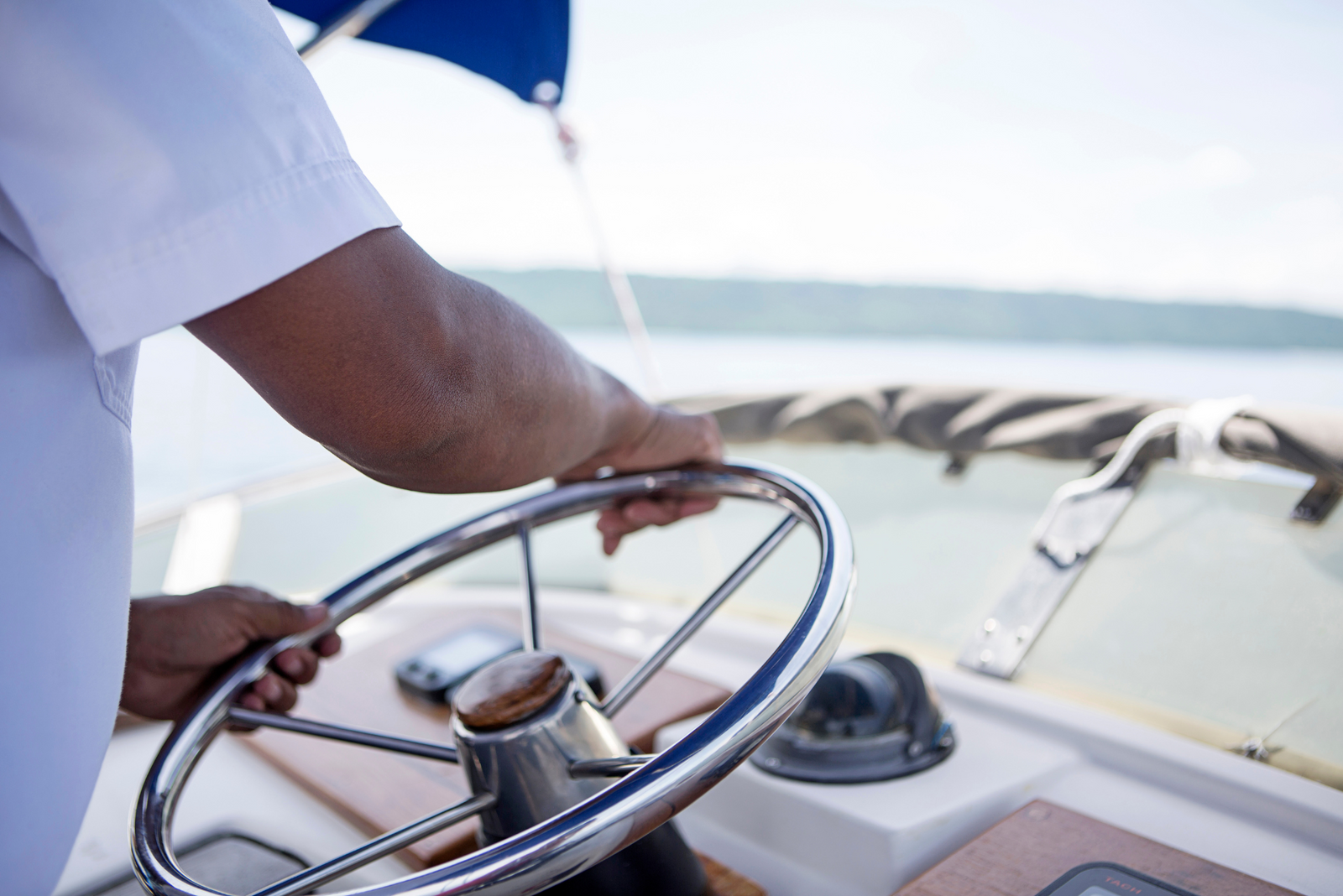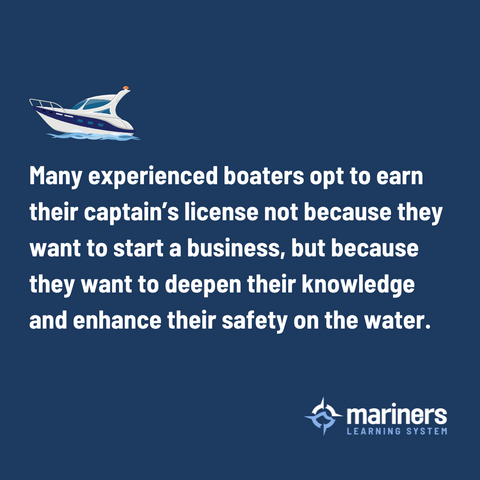Free Shipping On Orders $50+
Free Shipping On Orders $50+

Everything You Need to Know to Get Your Captain’s License in New Jersey
by Bob Figular April 23, 2024
Do you really need a captain’s license to drive a boat in New Jersey? It all depends.
If you’re just taking friends or family out on the water, then no, a captain’s license isn’t required. If, however, you plan to charge a fee and take passengers out for hire, the U.S. Coast Guard requires that you have your captain’s license.
That said, many experienced boaters opt to earn their captain’s license not because they want to start a business but because they want to deepen their knowledge and enhance their safety on the water.
Whatever your reason, understanding the captain’s license requirements for New Jersey (or any other state) is critical to your success.

Boating in New Jersey (and Why You Might Want a Captain’s License)
New Jersey holds a unique appeal for boaters, hosting rivers, lakes, bays, and ocean. And each of these types of bodies of water requires a different base of knowledge and understanding to navigate safely.
The state also boasts three separate boating seasons — spring, summer, and fall — all the way up until ice starts covering the bays. And for heartier folks, fishing charters can even take them out in search of cod through the winter.
A captain’s license course provides useful information to keep you safer as you take advantage of New Jersey’s diverse seasons and waterscapes, ensuring you enjoy (and/or profit from) activities like the following:
Recreational and Commercial Fishing
Fishing is a nearly year-round activity in New Jersey, both commercially and recreationally. The ocean boasts stripers, bluefish, and cod; the lakes and rivers have great freshwater fishing; and the bays offer not only flounder and weakfish but low-tide opportunities for crabbing and clamming as well.
Eco Tours
Eco tours operate from spring through fall in New Jersey’s beautiful state parks and inlets. Not only can you bring your boat out to see events like bird migrations, but you can also get seasonal passes for fishing and other activities.
Cruises and Water Taxis
New Jersey offers plenty of dinner and sunset cruises, especially around Atlantic City and the Cape May area. Business booms until November, when it gets a little too chilly for passengers. But with all the great restaurants in these areas, there are still opportunities for water taxiing until it freezes.
Recreational Sailing
With areas deep enough to sail freely and few bridges, New Jersey is attractive for recreational sailing, too. You aren’t hard-pressed to find anchorages where you can bring your family to barbecue, cook on your boat, and even stay overnight.
New Jersey Captain’s License Requirements
- Captain’s license requirements aren’t specific to New Jersey or any other state; they’re the same across the country. The most significant requirement is a minimum of 360 documented days — consisting of at least four hours each — of boating experience. Of those 360 days, 90 days must be within three years of your application.
In New Jersey, colder winters can make getting the necessary experience take a little longer. However, you can log your days anywhere, so taking your boat down to a warmer state can speed up the process.
Wherever you go to get your time in, be sure to log your days correctly. Sometimes we see people get into trouble for claiming days when boating would have been impossible.
For example, one man who completed the Mariners course had his paperwork kicked back. As it turned out, the Coast Guard officer processing the paperwork was from the same area and recognized that the man claimed days on a body of water that was frozen at the time. He couldn’t get his license for a year because he lied on the form.

Steps to Earn Your Captain’s License in New Jersey (and Beyond)
Now that you understand captain’s license requirements, you can start building a timeline to earn your own. Here’s a step-by-step breakdown of what the process usually looks like, but keep in mind that many of the steps can overlap.
Step #1: Gain and Document Experience
By the time you’re ready to start earning your license, you should be well on your way to collecting those required 360 days on the water. You don’t need to have them all done before starting the next step, but make sure you have a plan to complete them, as some of the later steps have firm timing windows.
Step #2: Complete an Approved Captain’s License Course and Exam
To apply for a license, you need to complete either the Coast Guard’s exam or a Coast Guard-approved exam. The best way to prepare is by completing a course that provides the resources and guidance you need every step of the way.
Mariners offers a comprehensive and flexible online course that ends with a Coast Guard-approved exam. We’ve tailored our course to provide students with more than just knowledge to pass an exam; we want you to walk away with deep knowledge that actually benefits you on the water.
While the U.S. Coast Guard offers its own exam, the test pulls from a database of over 10,000 questions, not all of which necessarily relate to earning a captain’s license. Our Coast Guard-approved exam narrows its focus to the relevant information you need to know.
Once you register with Mariners, you have one year to complete the course on your own schedule, and you can retake the test until you succeed.
Step #3: Meet Additional Coast Guard Requirements
Aside from experience, other requirements include:
- Physical exam
- CPR certification
- First aid certification
If you go directly to the Coast Guard for your exam and licensing, you’ll need to meet all requirements within six months of your application. One benefit of taking a captain’s license course with Mariners is that you have a year to complete the course and another year to meet all Coast Guard requirements.
The caveat here is the physical exam. Regardless of the avenue you choose, your physical exam must take place within six months of your captain’s license application. We recommend students wait to get their physicals until they’ve completed the program and are close to submitting their license application.
Step #4: Apply for a Captain’s License
Once you meet the captain’s license requirements and pass the exam, you can apply for your license with the Coast Guard. They typically process your paperwork and issue your license within a few months.
Meet New Jersey Captain’s License Requirements With Mariners
Whether you want to start a commercial business, increase your safety on the sea, or deepen your knowledge about your favorite hobby, pursuing a captain’s license is a great next step. It may seem daunting in the beginning, but don’t let fear of the unknown hold you back.
Part of our course is advising students on the recommended timeline and nuances of Coast Guard requirements for earning their captain’s license. Contact us today to learn more.
Leave a Comment
Comments will be approved before showing up.
